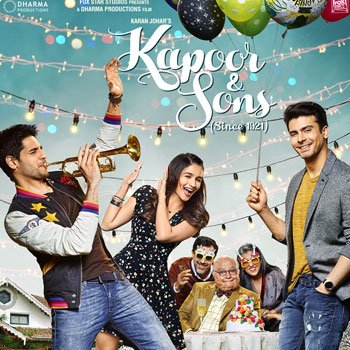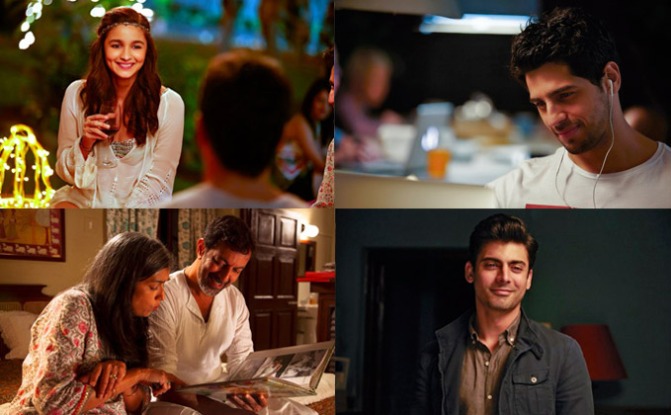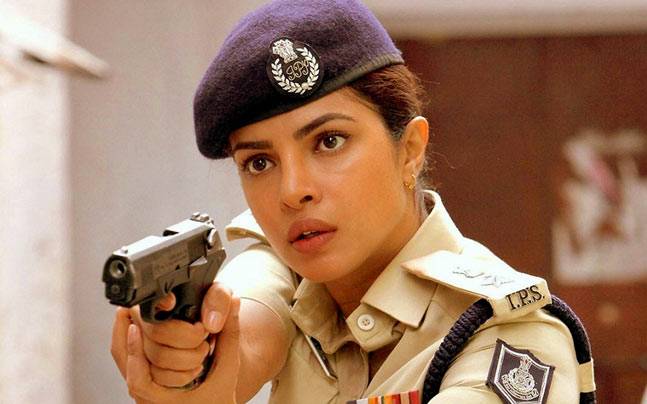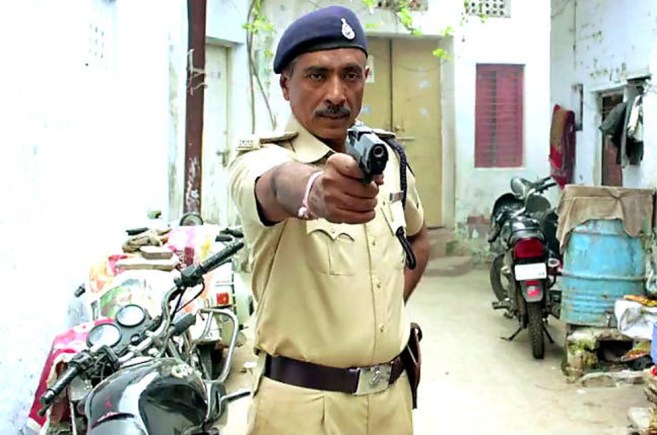What if I tell you that Bollywood has been mostly lying to you all these years? Don’t kill me. But, then I guess we all know about it – at least subconsciously, at the back of our heads. The Hindi film world’s portrayal of quintessential ‘Indian family’ and its ‘values’ has been so typical and utopian that it makes you cringe in your seat a little. I mean there is nothing wrong in portraying a ‘happy family’ with set spaces for parents, grannies, children and a puppy may be, but Bollywood should take the blame for serving us more of the same, so much of so that you may start believing that nothing, absolutely nothing can ever go wrong with your parivaar! Really?
 And someone like Karan Johar has led the pack of storytellers who have insisted that it’s all about loving your family. Johar has mostly caricaturized upper middle-class/urban family settings with his slow-mos, the morning sanskaari prayer session, the hearty laughs on the dining table as the family servant serves mom-made Rajma Chawal, the tears followed by an inevitable happy ending, the group hugging, touching of the feet and stuff. But, all of this is a little corny, ain’t it?
And someone like Karan Johar has led the pack of storytellers who have insisted that it’s all about loving your family. Johar has mostly caricaturized upper middle-class/urban family settings with his slow-mos, the morning sanskaari prayer session, the hearty laughs on the dining table as the family servant serves mom-made Rajma Chawal, the tears followed by an inevitable happy ending, the group hugging, touching of the feet and stuff. But, all of this is a little corny, ain’t it?
The love, the care, and the bonding apart, families, like any other social institution, do have their fair share of issues, tests and tribulations. So, it is quite refreshing and brave of Karan Johar to produce a film that is almost an antithesis of what his ‘version’ of the family stands for. Shakun Batra, the supremely talented director who was behind Ek Main Aur Ekk Tu – a wonderful rom-com that somehow got lost in the chronicles of Bollywood, turns the table on mainstream Bollywood and dishes out a family drama in that is less of drama and more about family (in real terms).
The Plot:
The Kapoor family’s 90- year old patriarch (Rishi Kapoor) suffers a heart attack that brings his grandsons, Rahul (Fawad Khan) and Arjun (Sidharth Malhotra) back to their family mansion in Coonoor. The reunion is great in spirit but a little uncomfortable in reality; Rahul and Arjun’s parents (Rajat Kapoor and Ratna Pathak Shah) are a squabbling couple dealing with long marriage and a looming financial crisis, Arjun has his own issues with being the ‘runner-up’, the forever ‘also-ran’ to his successful and seemingly perfect elder brother. Things complicate further when both the brothers seem to develop feelings for the same girl Tia (Alia Bhatt), who has her own backstory to cope with. As the entire Kapoor family spends some weeks together around a recuperating patriarch, skeletons start to tumble out of the closet. Everyone in the family has their secrets to hide, tragedies to deal with and compromises to make if they want to imagine and live a ‘happy family life’. How the Kapoors tolerate each other and deal with their challenges is the crux of Kapoor and Sons.

The film’s narrative is steady and well-paced throughout but really comes into its own in the second half. The gentle twists and turns in the story (Shakun Batra and Ayesha Devitre Dhillon) keep you hooked and in fact make the film very gripping. There is no unnecessary melodrama in the film with reality and subtlety being the hallmarks of Shakun Batra’s direction. The young director does complete justice to all his characters and lets their stories grow organically. Quite prudently, he steers clear of making heroes and villains in the narrative and states everything quite matter-of-factly. If there’s a slip in the film (at all), it is perhaps towards the climax when there seems to be a compulsion to make it a happy ending, quite ironically something that film take stands against throughout. But, that again is quite subjective, depending on what slice of life you want to binge on.
The Cast:
Kapoor and Sons has perhaps the best ensemble cast to have adorned a Hindi film in recent times. Out of this pack of talented actors, one man who shines like a diamond is the girl eye-candy Fawad Khan. The Pakistani actor steals the show with his brilliant understated portrayal of Rahul Kapoor – a man who is near perfect from the exterior but is simmering with vulnerability within. Fawad’s calmness is well complemented by the quirkiness of Rishi Kapoor who looks almost unrecognizable as a 90-year old. Apart from bringing some comic relief in the film, Rishi Kapoor also succeeds in bringing alive the agony of an old man who helplessly watches his family getting disintegrated in front of his eyes. Ratna Pathak Shah and Rajat Kapoor are effortless as a warring couple with Shah stealing the show in emotional scenes. Her variable equation with her two sons and delicate bond with the husband are perhaps the best written portions of the film.
Siddarth Malhotra, arguably the weakest link in the ensemble, surprises you with a rather polished performance. As the underdog member of the Kapoor family, he manages to get your sympathies, making you completely stand by his insecurities. The actor also manages to hold his own in emotional scenes with better actors and never really looks miscast or overwhelmed. Alia Bhatt, whose character is actually not central to the Kapoor family plot, brings her familiar effervescence to the narrative. Despite being at the risk of becoming a non-important character in the film, Alia is flawless in the emotional scenes and breezy in light-hearted exchanges.

The Technicalities:
Talking of the films’ technicalities, Jeffery Bierman’s camera has a distinct homely feel to it. As if someone was recording everything on a handy cam. A special mention should be made of a sequence where the Kapoor are quarreling while a plumber tries to fix a leaking pipeline. The hilarity of this scene lies not just in the writing and acting, but also in how the camera captures the proceedings in an indulgent way – almost like an invisible audience. The film’s music is quite apt with the songs seamlessly fitted in the narrative. Even the popular ‘Chul’ song is not thrown in the typical “chalo ab hero-heroine ko nachate hain” way. It’s all very real in the film – you get it, right? The background score suits the film’s ambiance and helps keep the melodrama quotient low. Ditto for editing which is very crisp and devoid of any flab.
The Verdict:
So, I will cut the long story short and simply urge you to go and watch Kapoor and Sons. With your entire parivaar. It’s a wonderful, heartfelt film that redefines the family drama genre in Hindi cinema and gives it a much-needed lifelike fillip by making you cry, smile and think. All so effortlessly and without really breaking a sweat.


